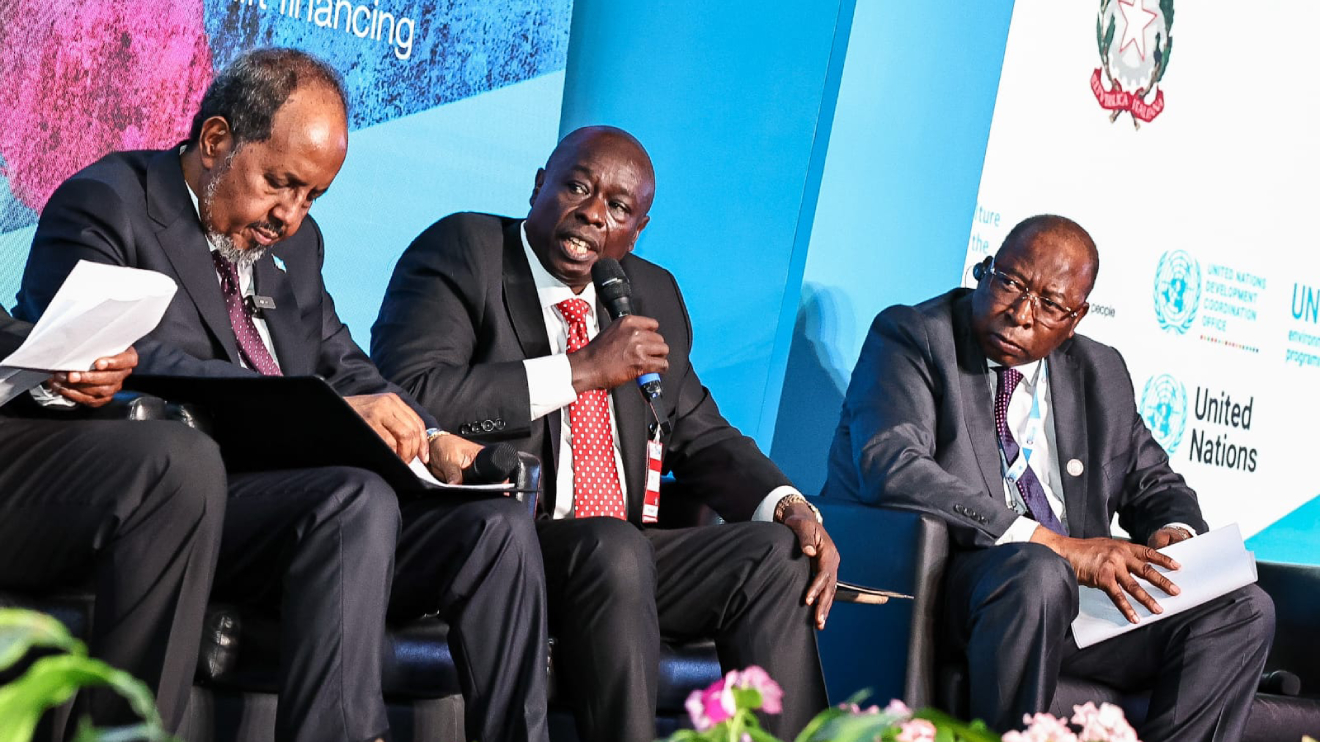In a keynote address at the United Nations Food Systems Summit Stock-Taking on Monday, Deputy President Rigathi Gachagua passionately advocated for a renewed focus on financing food systems in Africa, stressing the need for revolutionary
measures to ensure food systems across Africa with the aim of revolutionizing food production and bolstering food security in the continent.
Speaking at the United Nations Food Systems Summit Stock-Taking event on Monday, Gachagua emphasized the need for a revamped structure of financing food systems for African nations, highlighting the current system's drawbacks for the continent.
"We have rolled out the Hustler Fund for the access of the majority of the people in food production. This has enhanced financial inclusivity," Gachagua said, emphasizing Kenya's initiatives to fund food systems by investing more money at the grassroots level, where a significant portion of the food is produced.
The Deputy President further stated, "We have invested Sh50 billion to boost various interventions in the agricultural sector. We have subsidised fertilizers to increase food production."
Read More
Moreover, Gachagua revealed that these strategies have had a profound impact on school enrollment rates in Kenya, as school feeding programs have been significantly enhanced.
In his address at the high-level four-day meeting in Italy, representing President William Ruto at the invitation of UN Secretary-General Antonio Guterres, Gachagua focused on Kenya's Food Systems Transformation Initiative.
The primary objective was to review the commitment of governments, states, and other stakeholders in allocating resources to combat hunger and malnutrition.
The Deputy President's keynote address set the stage for the Heads of State session, which will feature discussions involving Italy's Prime Minister Georgia Meloni and Guterres on the crucial matter of food security.
During the summit, extensive deliberations will also take place regarding the school meals program, in which states collaborate with partners to ensure pupils in public primary schools receive balanced and nutritious food.
This program aims to promote better health and improved educational outcomes.












